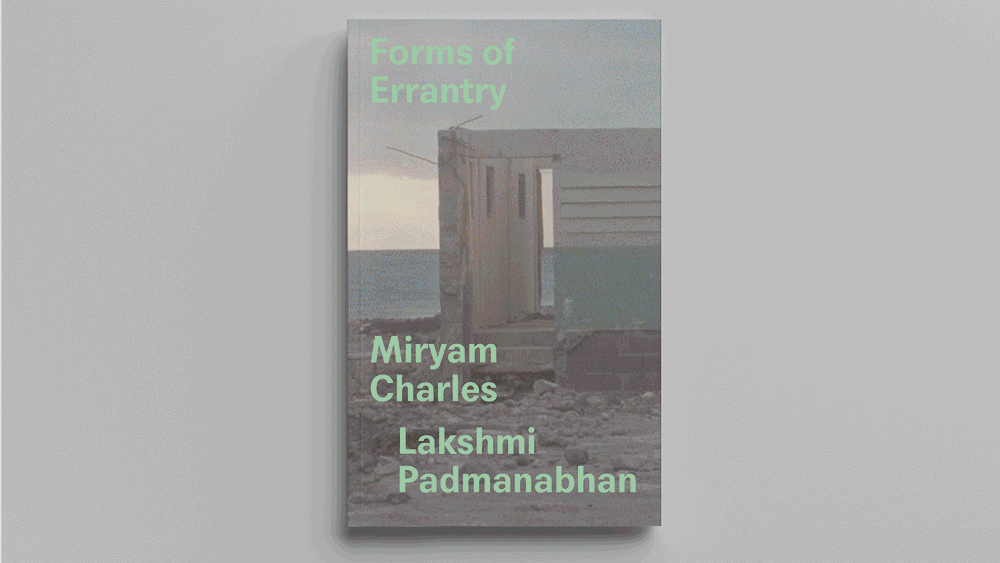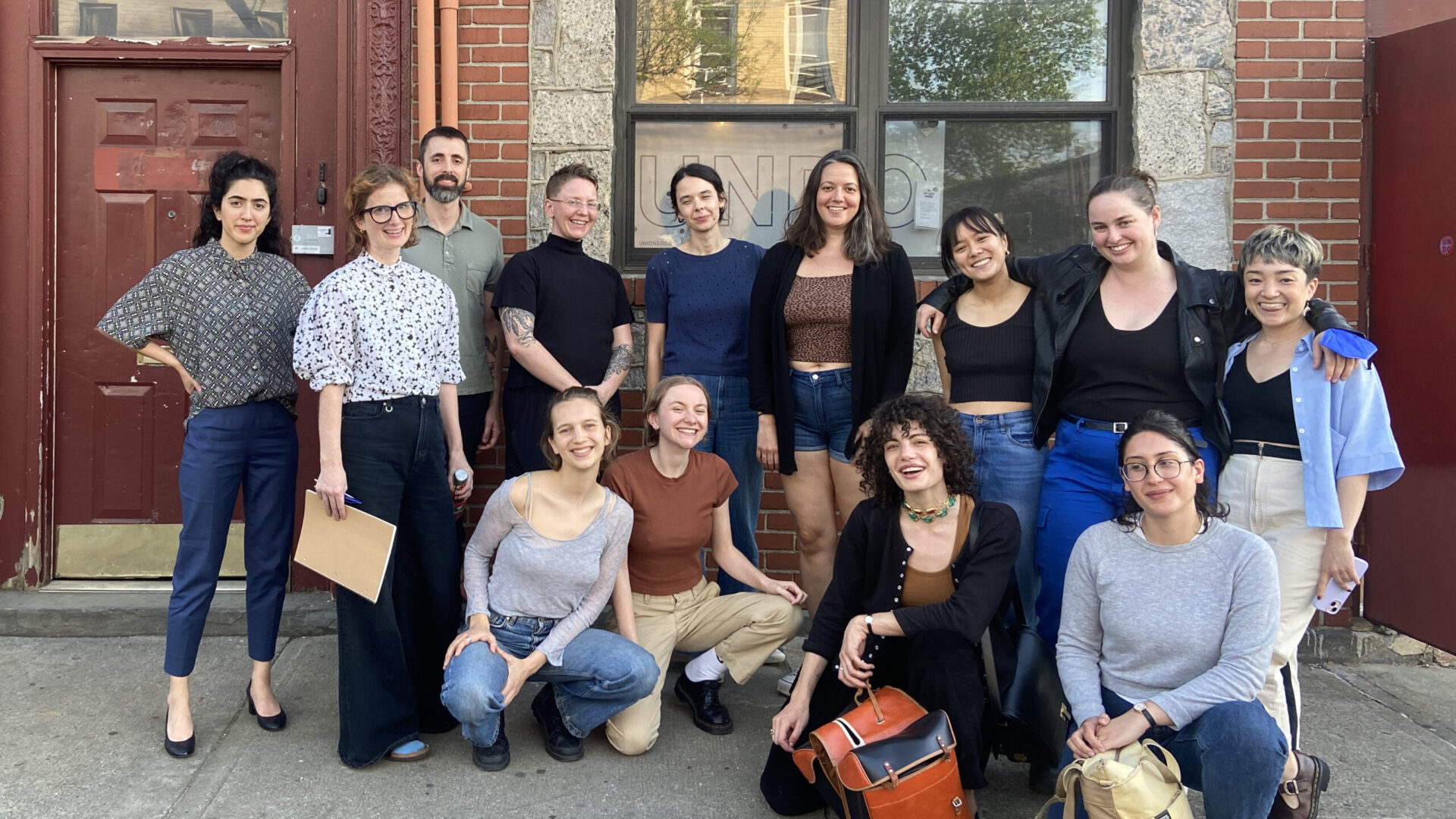Cinema’s origins have held an enduring appeal for the avant-garde. In the act of returning to cinema’s earliest productions, experimental filmmakers from different eras and regions have discovered a highly flexible and productive artistic gesture. Such returns facilitate interrogations of film history as well as efforts to renew film form or criticize modern media cultures; at their most fruitful, they question the terms of avant-garde film practice itself. The films of the Lumière brothers have lent themselves especially well to such endeavors. As a series of recent screenings produced at film venues such as Cornell Cinema, Mad Stork Cinema, and MoMA PS1 have demonstrated, remakes and revisions of works by the Lumières constitute a veritable sub-genre of avant-garde film: a common form through which highly disparate practitioners have repeatedly reframed our understanding of the cinematic, positioning our filmic present in relation to films past.
“Refracting Lumière” presents a highly distinctive subset of experimental films that re-stage, re-situate, or re-purpose filmic scenarios initiated by the Lumières. The program is drawn from the collection of the avant-garde film distributor, the Film-Makers’ Cooperative, and focuses on works produced in the 1970s, a decade of experimental film practice characterized by sustained inquiries into cinematic specificity, as well as innovative contributions to narrative, found footage, and diaristic film forms. Works exemplifying these tendencies by Malcolm Le Grice, Chick Strand, Hollis Frampton, and Bill Brand will be presented alongside a short compilation reel that reproduces the Lumière brothers’ first public exhibition program in 1895, provided by the New York Public Library’s Reserve Film and Video Collection. The screening will be followed by a Q&A with the artist Bill Brand.
Lumiere Premiere Program: 1895, Auguste and Louis Lumière, 1895, 16mm, b&w, silent, 5 min
“A compilation of the earliest films of the brothers Auguste and Louis Lumière, French pioneers in cinema. Includes their first film, shown March 22, 1895, Workers leaving the Lumière factory; Congress of Photographers, Lyons, June 1895 (the first news film). Others from the first public exhibition of projected films in France on December 28, 1895 at the Grand Cafe, Paris: Watering the gardener, Baby’s breakfast, Demolition of a wall, Arrival of a train at station, and A game of cards.” – New York Public Library
After Lumiere – L’Arroseur Arrose, Malcolm Le Grice, 1974, 16mm, color, sound, 13.5 min
“Like all the works I have done which refer directly to another artist, AFTER LUMIERE is not directly ‘about’ the Lumiere original. It is the starting point for an investigation. In this case it is an investigation into consequentiality, or at least the significance of sequentiality in the construction of meaning and concept. As such, the film encroaches on ‘narrative’ cinema, but in a way which treats narrativization as problematic, not transparent.” – Malcolm Le Grice
“The LUMIERE film is especially interesting… It is not simply a series of optical re-combinations, like cinematic anagrams, but an investigation into narration itself, which by counterpointing different narrative tones, so to speak, neither dissolves nor repeats Lumiere’s simple story… but foregrounds the process of narration itself.” – Peter Wollen
Loose Ends, Chick Strand, 1979, 16mm, b&w, sound, 25 min
“LOOSE ENDS is a collage film about the process of internalizing the information that bombards us through a combination of personal experience and media in all forms. Speeding through our senses in ever-increasing numbers and complicated mixtures of fantasy, dream and reality from both outside and in, these fragmented images of life, sometimes shared by all, sometimes isolated and obscure, but with common threads, lead us to a state of psychological entropy tending toward a uniform inertness … an insensitive uninvolvement in the human condition and our own humanity.” – Chick Strand
“[LOOSE ENDS] is a tour de force of polyvalent montage: virtually every shot develops the context established by its neighbors… Strand’s editing is so startling because it conceptually and graphically matches images that shift so radically in mood.” – James Peterson
Straits of Magellan: Drafts and Fragments, Hollis Frampton, 1974, 16mm, color, 20 min excerpt of total 52 min
“A sampling of forty-nine fragments from Frampton’s catalogue of ‘actualities’, the films from STRAITS OF MAGELLAN; DRAFTS AND FRAGMENTS, are all silent and unedited. Several invoke, directly, the work of the Lumieres…” – Bruce Jenkins
“I have already made 12 or 14 of these one-minute anti-extravaganzas, and they have been very instructive […] an closed imitation of the Lumiere brothers. […] The reason I put these things at the Straits, at the most perilous passage of Magellan’s voyage, is that I have come to feel that the qualities of the image itself, of the illusionistic image […] that’s what the magic comes out of. […] the bedrock is still the illusion… the frame… and the poignancy and the resonance of what the frame can contain, so that Magellan on his voyage has got to pass through that, that’s the tough one. If you can do that […] that may expatiate upon or underline some particular quality of that vast metaphor for consciousness that film is slowly becoming.” – Hollis Frampton
Demolition of a Wall, Bill Brand, 1973, 16mm, b&w, sound, 27 min
“After showing 1896 Lumiere film, DEMOLITION OF A WALL in its entirety, this film takes six frames of the falling wall and shows them in all their permutations. Meanwhile, a piano track follows a similar pattern and plays with sound/image relationships. In the original version, we see Lumiere himself directing the demolition of a wall by workers while a mysterious man in the background watches. In the first commercial film show, of which this was a part. Lumiere reversed the projection causing the wall appear to reconstitute itself and thus created an additional spectacle. Here, we celebrate that spectacle by watching 718 additional variations on the theme of deconstruction/reconstruction.” – Bill Brand
“DEMOLITION OF A WALL is perhaps a final didactic work involving variations within a limited system. The film serves as a ritual of excoriation while standing as a challenge to the possibility of transcending systems… [It] is a plea for escape from the diminishing vantage point of rational systems.” – Bill Brand
 Josh Guilford is a film scholar and curator currently living in New York City. He manages print traffic at the Film-Makers’ Cooperative, and is a part-time faculty member at the New School. Between 2010-14, he co-organized the Providence-based experimental film series Magic Lantern Cinema. He holds a Ph.D. in Modern Culture and Media from Brown University.
Josh Guilford is a film scholar and curator currently living in New York City. He manages print traffic at the Film-Makers’ Cooperative, and is a part-time faculty member at the New School. Between 2010-14, he co-organized the Providence-based experimental film series Magic Lantern Cinema. He holds a Ph.D. in Modern Culture and Media from Brown University.
 Bill Brand‘s films, videos and art installations have been exhibited extensively in the US and abroad in museums, film festivals and microcinemas. His 1980 Masstransiscope, an animated mural installed in the New York City subway, is in the MTA Arts for Transit permanent collection. Bill Brand lives in New York City and is Professor of Film and Photography at Hampshire College in Amherst, Massachusetts as well as Adjunct Professor of Film Preservation at New York University’s Moving Image Archiving and Preservation graduate program. His company BB Optics specializes in archival film preservation of small gauge films and films by artists. In 2006 he was named an Anthology Film Archives Film Preservation Honoree and given a month long retrospective to celebrate BB Optics’ 30th anniversary.
Bill Brand‘s films, videos and art installations have been exhibited extensively in the US and abroad in museums, film festivals and microcinemas. His 1980 Masstransiscope, an animated mural installed in the New York City subway, is in the MTA Arts for Transit permanent collection. Bill Brand lives in New York City and is Professor of Film and Photography at Hampshire College in Amherst, Massachusetts as well as Adjunct Professor of Film Preservation at New York University’s Moving Image Archiving and Preservation graduate program. His company BB Optics specializes in archival film preservation of small gauge films and films by artists. In 2006 he was named an Anthology Film Archives Film Preservation Honoree and given a month long retrospective to celebrate BB Optics’ 30th anniversary.
Brand’s films and videos have been featured at museums including Museum of Modern Art, Whitney Museum, National Gallery of Art, and Shanghai Duolun Museum of Modern Art as well as at major film festivals including the Berlin Film Festival, New Directors/ New Films Festival, Tribeca Film Festival and Rotterdam Film Festival. The work is discussed in histories of cinema including the books Documentary, A History of the Non-Fiction Film, (1992) by Erik Barnouw; Allegories of Cinema, (1990) by David James and in a chapter by Robin Blaetz titled “Avant-Garde Cinema of the Seventies” in Lost Illusions, American Cinema in the Shadow of Watergate and Vietnam 1970-1979 by David Cook. Brand’s work has also been written about in news and journal articles by Janet Maslin, Paul Arthur, J. Hoberman, B. Ruby Rich, Ian Christie, Noel Carroll, Brian Frye and Randy Kennedy among others.
Bill Brand founded the showcase and workshop Chicago Filmmakers in 1973, and served on the Board of Directors of the Collective for Living Cinema until 1991 in New York City. He co-founded Parabola Arts in 1981 and is currently an artistic director. He has served as a member of the board of trustees for The Flaherty and is an advisor to the Orphan Film Symposium.







